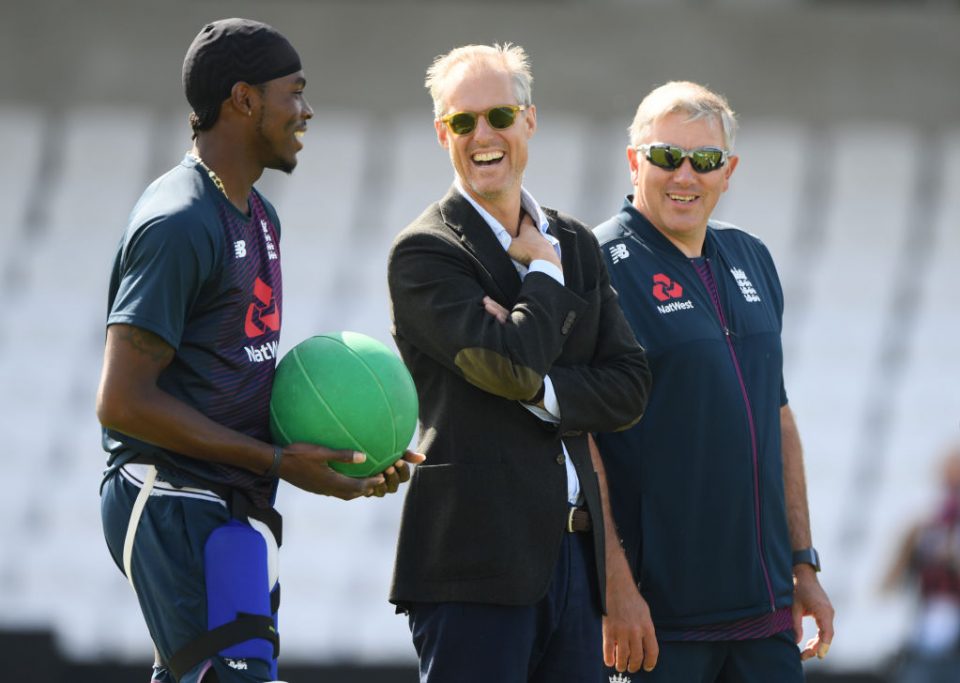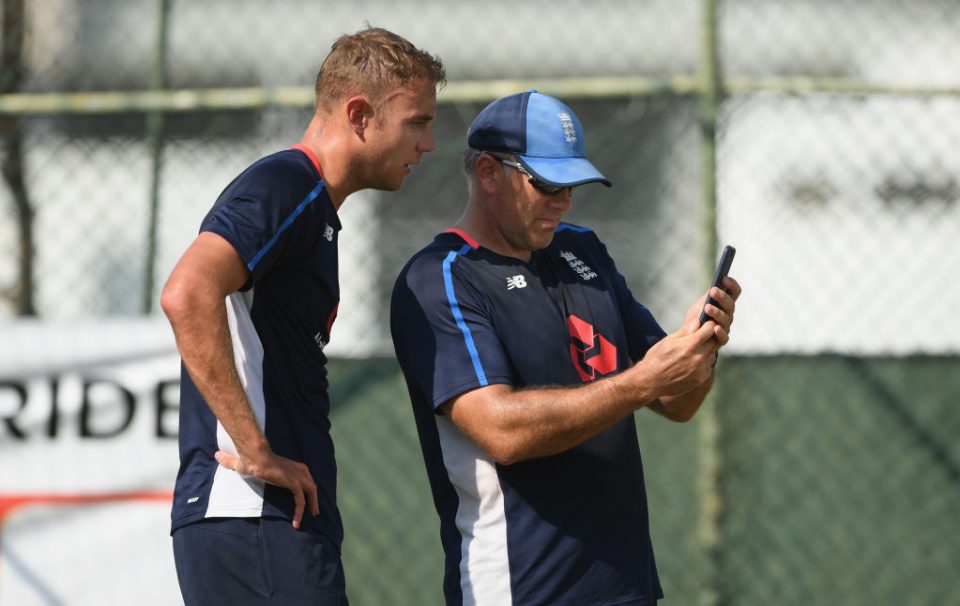‘Safe pair of hands’ Chris Silverwood brings continuity rather than innovation to England head coach role

The appointment of Chris Silverwood as England’s new head coach is one which sees the England and Wales Cricket Board’s hierarchy backing continuity, rather than innovation.
Silverwood has stepped up from his role of bowling coach, which he has performed for the last two years, to fill the shoes of Trevor Bayliss in an act of maintaining the status quo.
Read more: Inside the launch of The Hundred
Bayliss may have followed his long-time assistant Paul Farbrace out of the door last month, but if, as expected, Graham Thorpe and Paul Collingwood remain as coaches then the ECB have opted to continue on the pathway the Australian trod, rather than head off in a different direction.
‘Very solid character’
Today’s statement contained plenty of indications of the ECB’s priorities. Silverwood was the “standout candidate” according to director of cricket Ashley Giles, because he is “somebody we know well,” who has an “intimate understanding of our structures and systems” and “close relationships with Test captain Joe Root and white-ball captain Eoin Morgan”.
Those assertions were backed up from the outside by former captains Nasser Hussain and Michael Atherton.

Speaking to Sky Sports, Hussain described Silverwood as a “safe pair of hands” and “a very solid character” who is “not an in-your-face type”. Meanwhile, in his column for The Times, Atherton added: “Nobody I have spoken to has a bad word to say about him or his coaching skills.”
This is an appointment which won’t rock the boat and which does, of course, have its benefits.
County credentials
As noted by Giles, who led the recruitment process which also looked at Surrey director of cricket Alec Stewart and former South Africa and India coach Gary Kirsten, Silverwood already knows the role intimately.
That’s because he’s been groomed for it: Giles has previously spoken openly of his desire to go for an Englishman and talked up Silverwood’s credentials back in February.
The 44-year-old knows the hierarchy to which he will now report, he knows the current players and, unlike Bayliss, he knows the pool from which other players will emerge.
Silverwood won two titles as head coach of Essex – Division Two in 2016 and Division One a year later – and he remains connected to the County Championship via his former county.
Unlike Bayliss, who knew nothing of the domestic game when he arrived in May 2015 and left barely any wiser in September 2019, Silverwood will be aware of the up-and-coming talents.
He will have a say. He won’t leave selection solely in the hands of national selector Ed Smith and selector James Taylor.
Underwhelming reaction
However, there is always an alternative point of view and there is a reason for the pervasive underwhelming reaction.
While Giles, chief executive officer Tom Harrison and head of coach development John Neal will insist they got their man, the process might have been able to cast a wider net if the landscape of cricket had been different.

From the outside the role of national head coach appears to be a dream job, but the reality is that for many top coaches it is unappealing. Many prefer the ample remuneration and shorter timescales provided by franchise Twenty20 tournaments and the ECB’s own golden goose, The Hundred.
The three-format responsibility, incessant touring schedule and unrelenting media scrutiny can make the role of a national coach a hard sell.
If more names been put into the hat, would Silverwood still have been the “standout candidate”? And if so would Giles have been open to selecting a non-English coach with the remit of wiping the Bayliss slate clean and starting anew?
As it is, England will head to New Zealand at the end of this month with a new personality in charge, but largely unchanged behind the scenes.
Only time will tell whether that proves to be a subtle masterstroke or an act of wilful neglect.
Main image credit: Getty Images